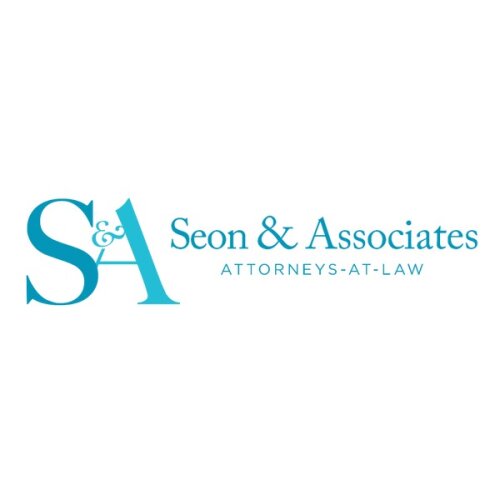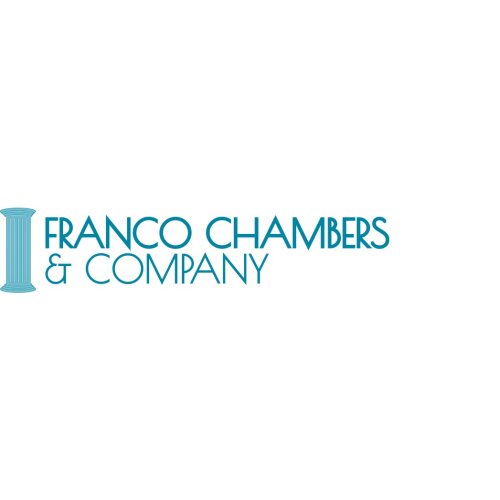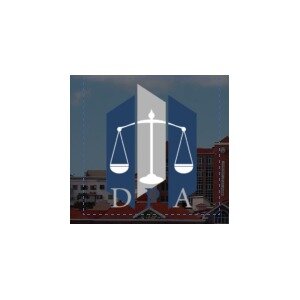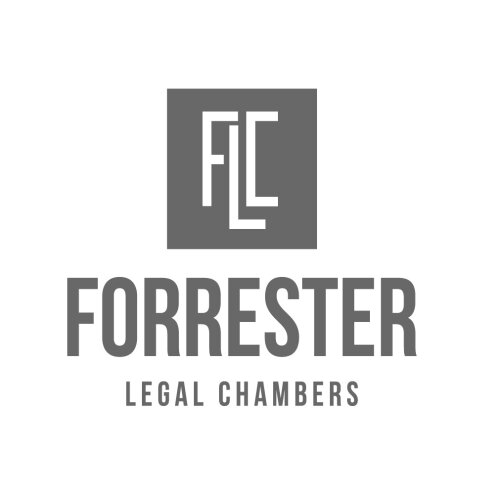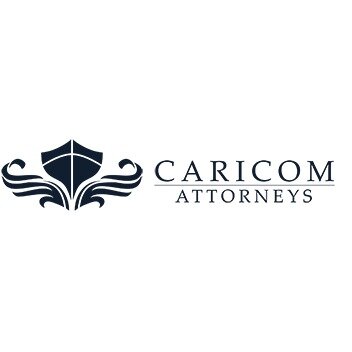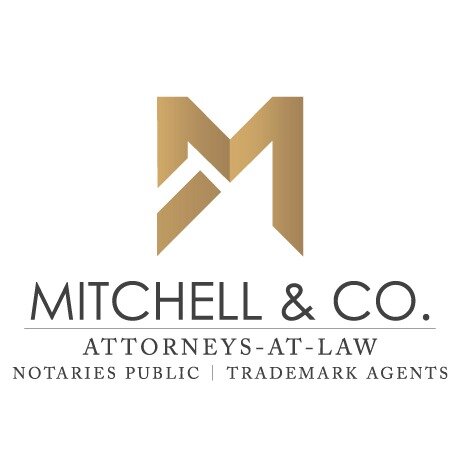Best Conveyancing Lawyers in Grenada
Share your needs with us, get contacted by law firms.
Free. Takes 2 min.
Free Guide to Hiring a Real Estate Lawyer
Or refine your search by selecting a city:
List of the best lawyers in Grenada
About Conveyancing Law in Grenada
Conveyancing in Grenada refers to the legal process of transferring property ownership from one person or entity to another. It involves all activities surrounding the purchase, sale, or transfer of land and property, including preparing and reviewing necessary documents, conducting title searches, and registering the transfer with the relevant governmental authorities. Conveyancing ensures the legal rights to property are properly transferred and legally recorded, providing security and peace of mind for both buyers and sellers.
Why You May Need a Lawyer
Conveyancing can be a complex process, especially for individuals unfamiliar with Grenadian property laws and regulations. Common situations where a person may need a lawyer for conveyancing include:
- Buying or selling a home or land for the first time
- Transferring property between family members
- Dealing with property that is part of a deceased person’s estate
- Handling disputes related to boundaries, title, or co-ownership
- Addressing issues uncovered during title searches, such as liens or encumbrances
- Understanding and complying with legal obligations, taxes, and fees associated with property transfers
- Ensuring proper documentation for properties with more complex histories or multiple owners
Legal assistance can help you avoid costly mistakes, delays, or legal challenges that may arise during the conveyancing process.
Local Laws Overview
Conveyancing in Grenada is governed by several key statutes and regulations designed to protect buyers, sellers, and third parties. Some of the main aspects include:
- Title Registration: Grenada uses a registered title system, meaning all transfers of land or property must be officially recorded with the local Land Registry.
- Deeds and Mortgages: Legal documents related to the sale or transfer of property including deeds and any mortgages must be properly prepared, executed before a notary public, and registered.
- Stamp Duty and Fees: The government levies stamp duty and registration fees, the rates of which may vary depending on the nature and value of the transaction.
- Searches and Due Diligence: It is mandatory to conduct title searches to confirm ownership and ensure there are no pending encumbrances, legal disputes, or unpaid taxes on the property.
- Foreign Ownership: Non-nationals wishing to purchase property are required to obtain an Alien Landholding Licence before the conveyancing process can be completed.
- Special Provisions: Properties within certain developments or holding specific planning permissions may be subject to additional restrictions or requirements.
Understanding and complying with these requirements is crucial to ensuring a secure property transfer in Grenada.
Frequently Asked Questions
What is involved in the conveyancing process in Grenada?
Conveyancing involves verifying the seller’s legal right to sell the property, making and accepting an offer, preparing and signing a sale agreement, conducting searches and due diligence, settling taxes and fees, paying the purchase price, and registering the new ownership at the Land Registry.
How long does conveyancing typically take?
The process can take anywhere from a few weeks to several months depending on the complexity of the transaction, responsiveness of both parties, and completion of searches and governmental paperwork.
Do I need a lawyer to buy or sell property in Grenada?
While it is not strictly required by law, it is highly recommended to retain a lawyer due to the legal complexities, especially if you are unfamiliar with local regulations or are a non-national.
What searches are necessary during conveyancing?
Title searches, tax clearance, and confirmation of any pending encumbrances or liens on the property are essential searches that protect both buyers and sellers.
What taxes or fees are payable during conveyancing?
Buyers and sellers may be responsible for stamp duty, transfer taxes, registration fees, legal fees, and, where applicable, the cost of an Alien Landholding Licence for non-nationals.
Can foreigners buy property in Grenada?
Yes, foreigners can purchase property but must first obtain an Alien Landholding Licence from the government, a process that involves a separate application and approval procedure.
What happens if a dispute arises during conveyancing?
If disputes occur, such as boundary or title disagreements, legal advice should be sought immediately to explore resolution through negotiation, mediation, or court proceedings if necessary.
Can I transfer property to a family member as a gift?
Yes, you can transfer property as a gift, but this transaction must still be formalized through proper legal documentation and registration, and may be subject to applicable taxes and fees.
What is the role of the Land Registry in Grenada?
The Land Registry records all property ownership and transactions, providing an official record that establishes legal title and is essential for the protection of both buyers and sellers.
What if I discover an issue with the property after purchase?
If issues such as encumbrances or unpaid taxes are discovered post-purchase, legal recourse may be available depending on the terms of the sale. Conducting thorough due diligence prior to completion is the best protection.
Additional Resources
If you need more information or wish to contact relevant offices, consider the following resources:
- The Land Registry: Responsible for property title registration and record keeping in Grenada.
- Grenada Bar Association: A professional body of licensed lawyers for referrals and professional conduct matters.
- Ministry of Legal Affairs: Provides information on relevant laws, regulations, and licensing requirements, including Alien Landholding Licences.
- Inland Revenue Division: For tax clearance certificates and information on applicable property taxes and duties.
- Licensed Notaries Public: Assists with the authentication and witnessing of legal documents.
Next Steps
If you are planning on buying, selling, or transferring property in Grenada, your first step should be to consult with a lawyer experienced in conveyancing. A qualified legal professional can:
- Review and explain relevant documents and agreements
- Conduct all necessary title and registry searches
- Advise you on your rights and obligations under Grenadian law
- Handle negotiations, settlements, and communications on your behalf
- Ensure that every legal formality is completed to protect your interests
To proceed, gather all relevant information and documentation about the property and approach a reputable lawyer or notary with expertise in conveyancing. They will guide you through each step, answer your questions, and make the process as smooth as possible. Remember, proper legal guidance is key to avoiding risks and securing your investment in Grenada.
Lawzana helps you find the best lawyers and law firms in Grenada through a curated and pre-screened list of qualified legal professionals. Our platform offers rankings and detailed profiles of attorneys and law firms, allowing you to compare based on practice areas, including Conveyancing, experience, and client feedback.
Each profile includes a description of the firm's areas of practice, client reviews, team members and partners, year of establishment, spoken languages, office locations, contact information, social media presence, and any published articles or resources. Most firms on our platform speak English and are experienced in both local and international legal matters.
Get a quote from top-rated law firms in Grenada — quickly, securely, and without unnecessary hassle.
Disclaimer:
The information provided on this page is for general informational purposes only and does not constitute legal advice. While we strive to ensure the accuracy and relevance of the content, legal information may change over time, and interpretations of the law can vary. You should always consult with a qualified legal professional for advice specific to your situation.
We disclaim all liability for actions taken or not taken based on the content of this page. If you believe any information is incorrect or outdated, please contact us, and we will review and update it where appropriate.
Browse conveyancing law firms by city in Grenada
Refine your search by selecting a city.



